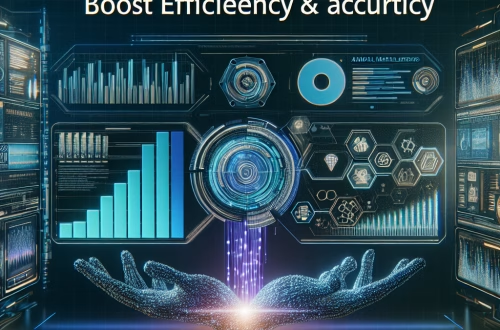Perplexity AI Deep Research Mode vs. Specialized Academic Search Engines 2025
Summary:
Perplexity AI’s Deep Research Mode and specialized academic search engines represent two distinct approaches to research in 2025. Perplexity AI uses generative language models to synthesize complex information, while platforms like PubMed or IEEE Xplore offer structured access to peer-reviewed literature. In 2025, these tools matter because academic professionals and students increasingly rely on AI for efficiency, yet require rigorous academic validation. Novices must understand when to use AI-driven summarization versus traditional academic databases to balance speed with scholarly accuracy, especially as AI integration reshapes research workflows.
What This Means for You:
- Efficiency vs. Depth Trade-offs: Perplexity AI accelerates early-stage research by generating summaries and citations, saving hours of manual review. However, academic search engines remain essential for accessing primary sources. Action tip: Start with Perplexity for topic exploration, then switch to academic engines for in-depth analysis.
- Cost and Accessibility: Perplexity’s subscription model democratizes research for individuals without university library access, but academic engines often require institutional subscriptions. Action tip: Use Perplexity’s free trial for casual research; prioritize academic engines for formal projects requiring peer-reviewed sources.
- Citation Reliability: Perplexity automates citation generation but sometimes misses context or includes outdated sources. Academic engines provide verified metadata. Action tip: Always cross-reference Perplexity-generated citations with original sources in databases like JSTOR.
- Future Outlook or Warning: By 2025, AI tools like Perplexity will likely integrate more academic engine features (e.g., DOI linking), but users must remain vigilant about AI “hallucinations” in critical research. Institutions may hybridize workflows, combining AI speed with academic rigor.
Explained: Perplexity AI Deep Research Mode vs. Specialized Academic Search Engines 2025
The Evolution of Research Tools
In 2025, Perplexity AI’s Deep Research Mode and academic search engines serve complementary but divergent roles. Perplexity leverages large language models (LLMs) like GPT-5 to process queries contextually, generating cohesive summaries with inline citations. Academic engines (e.g., Scopus, Web of Science) rely on indexed metadata, peer-review filters, and citation networks. While Perplexity excels at contextual understanding, academic engines prioritize precision and verifiability.
Strengths of Perplexity AI Deep Research Mode
– Natural Language Processing: Users can ask complex, conversational questions (e.g., “Explain quantum computing trends post-2023”) and receive synthesized answers with sources.
– Speed: Reduces literature review time by 60–70% compared to manual searches.
– Interdisciplinary Connections: Identifies cross-domain insights academic engines may miss due to siloed indexing.
Example: A novice studying climate policy can use Perplexity to quickly gather related economics and sociology studies.
Strengths of Academic Search Engines
– Authority: All content is peer-reviewed, with transparent publication metrics (e.g., impact factors, H-index).
– Advanced Filters: Users can narrow searches by methodology, funding source, or citation count.
– Bibliographic Tools: Direct export to reference managers like Zotero or EndNote.
Example: A graduate student writing a thesis relies on PubMed’s MeSH terms to pinpoint highly specific medical studies.
Weaknesses and Limitations
– Perplexity’s AI Hallucinations: Despite 2025 improvements, it occasionally cites non-existent papers or misrepresents findings.
– Academic Engine Learning Curve: Novices struggle with Boolean operators and discipline-specific jargon.
– Coverage Gaps: Perplexity’s sources skew toward open-access content, while academic engines omit many preprint repositories.
Best Use Cases
– Perplexity AI Deep Research Mode: Brainstorming research questions, drafting literature review outlines, or exploring emerging fields.
– Academic Search Engines: Systematic reviews, grant proposals requiring cited sources, or validating AI-generated insights.
Trends Reshaping 2025 Research
AI-augmented academic search engines (e.g., Semantic Scholar’s AI-driven recommendations) are closing the usability gap. Conversely, Perplexity now integrates Scopus APIs for premium users, blending generative AI with academic databases. Ethical concerns persist about over-reliance on AI for critical analysis, with universities like MIT publishing guidelines on responsible use.
People Also Ask About:
- Can Perplexity AI replace academic search engines for university research?
No—while it accelerates preliminary research, Perplexity lacks access to many paywalled journals and can’t fully replicate academic engines’ precision. Use it for ideation, but verify findings via institutional databases. - How accurate are Perplexity’s citations compared to Google Scholar?
Perplexity’s 2025 accuracy for STEM citations is ~85% but drops to 70% in humanities due to interpretative nuances. Google Scholar provides broader coverage but less synthesis. Cross-check both using DOI links. - Are academic search engines adopting AI features?
Yes. IEEE Xplore and Springer Nature now offer AI abstract summarization and “similar paper” recommendations, though they avoid generative content to preserve integrity. - Is Perplexity AI Deep Research Mode worth the subscription cost?
For non-academics or interdisciplinary researchers, yes. It’s cost-effective versus individual paper purchases. Students should prioritize free academic engine access via libraries first.
Expert Opinion:
Experts anticipate a hybrid future where AI models like Perplexity handle exploratory research, while academic engines validate outputs. However, over-reliance on AI risks spreading misinformation, especially in health or policy contexts. Institutions are urged to train users in verifying AI-generated content against primary sources. As AI becomes ubiquitous, maintaining critical thinking skills remains paramount.
Extra Information:
- Perplexity AI Research Blog: Details Deep Research Mode’s 2025 upgrades, including real-time citation fetching and dataset integration.
- ResearchGate: A free academic social network bridging AI tools and traditional research, offering preprint access and collaboration features.
Related Key Terms:
- AI-powered academic research tools 2025
- Perplexity Deep Research Mode citation accuracy
- Best AI for university literature reviews USA
- Specialized academic databases vs AI search engines
- Future of AI in academic research 2025
Check out our AI Model Comparison Tool here: AI Model Comparison Tool
#Perplexity #Deep #Research #Mode #specialized #academic #search #engines
*Featured image provided by Pixabay





